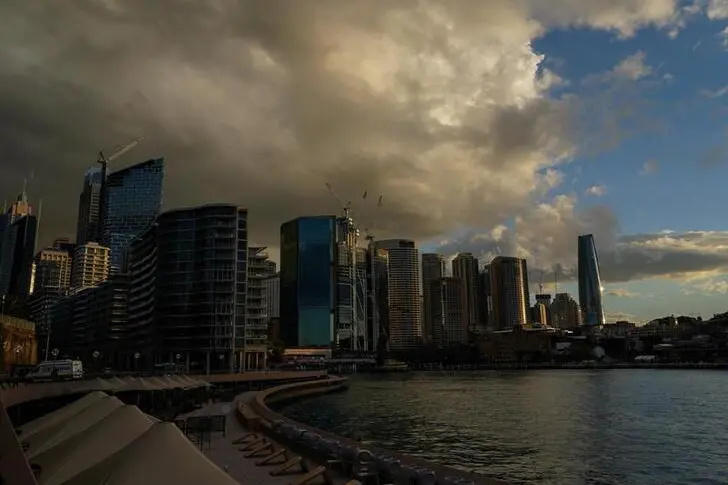PHOTO
SYDNEY - Australian government spending rose strongly in the June quarter amid a splurge on public infrastructure, a crucial boost to economic growth that may have helped the country dodge an imminent recession.
The economy is still certain to contract sharply this quarter as coronavirus lockdowns hammer activity, but it might jus avoid a recession, defined as two successive quarters of negative output figures.
Data from the Australian Bureau of Statistics out on Tuesday showed public spending jumped 2.5% to A$134.7 billion ($98.28 billion) in the June quarter, adding around 0.7 percentage point to gross domestic product (GDP).
"We now think that GDP scraped out a rise of 0.1% in the second quarter, narrowly avoiding a technical recession," said Ben Udy, an economist at Capital Economics.
The GDP report is due on Wednesday and median forecasts have been for growth of 0.5% in the quarter, though with a wide band of -0.1% to +1.2%.
While consumer spending and business investment looked solid for the quarter, some of that demand was met by imports and inventories rather than more output, so dragged on GDP.
Net exports alone were expected to subtract a whole percentage point from growth, as export volume fell even as export value jumped to an all-time high.
Indeed, Australia's current account deficit widened to a record A$20.5 billion in the June quarter, courtesy of booming prices for iron ore and robust demand from China.
Still, the GDP figures will be even more historic than usual given lockdowns have spread across Sydney, Melbourne and Canberra in the last few months.
Victoria state on Tuesday said it was too early to ease its strict coronavirus rules, while New South Wales is seeing record infections every day.
"Around 60% of the population are currently in lockdown and the economy is likely to contract by well over 3% this quarter," said Sarah Hunter, chief Australia economist for BIS Oxford Economics.
"But with vaccination rates rising sharply, state governments are flagging easing restrictions from mid-Q4 onwards which will allow the economic recovery to begin before the end of the year."
The conservative government of Prime Minister Scott Morrison hopes to start easing restrictions when 70% of the eligible population is vaccinated, and to end widespread lockdowns altogether when they reach 80%.
($1 = 1.3706 Australian dollars)
(Reporting by Wayne Cole; Editing by Himani Sarkar and Christopher Cushing) ((Wayne.Cole@thomsonreuters.com; 612 9171 7144; Reuters Messaging: wayne.cole.thomsonreuters.com@reuters.net))





















